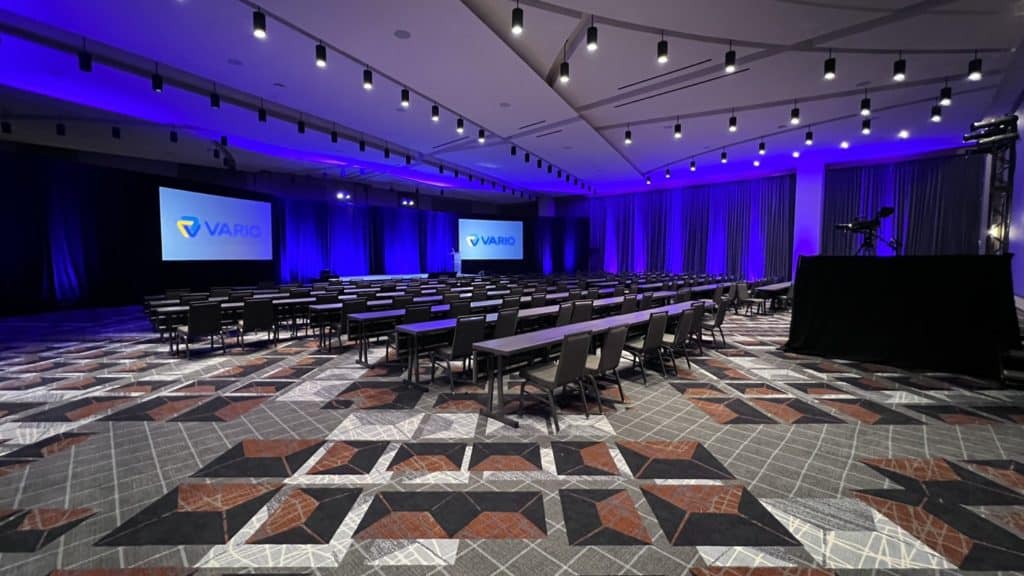The future of charlotte event companies in a digital-first world
A Deep Study Just How Event Management Works to Develop Remarkable Experiences
Event management is an intricate technique that incorporates various aspects to craft memorable experiences. It calls for a clear understanding of the event's function and audience. Organizers have to browse budgeting, logistics, and advertising and marketing to guarantee a smooth execution. Each element plays an essential function in attaining the preferred influence. However, the journey does not finish with the event itself. There are insights to discover that can form future undertakings.
The Fundamentals of Event Management
Efficient event management incorporates a series of crucial principles that assist the preparation and implementation of successful occasions. At its core, it entails understanding the event's function, target market, and desired outcomes. Determining the target group is critical, as it notifies choices associated with content, advertising, and logistics.
Budgeting is an additional basic aspect, guaranteeing that resources are designated successfully while fulfilling the event's purposes. This consists of planning for unpredicted expenses that may occur.
Time management plays a crucial duty, as event supervisors have to create a detailed timeline to coordinate various jobs and milestones.
Additionally, effective communication amongst stakeholders, suppliers, and employee is necessary to assure alignment and avoid misunderstandings.
Risk management have to be considered, with contingency strategies in area to attend to possible obstacles, thus boosting the general experience for attendees and ensuring a seamless execution of the event.
Secret Duties in Event Planning
In event preparation, recognizing crucial duties is vital for successful execution. The event planner is in charge of overseeing logistics and making certain all facets align with the vision. In addition, effective supplier management is important for preserving high quality and promoting strong collaborations throughout the preparation procedure.
Event Organizer Duties
An occasion planner coordinates the intricate elements of event preparation, guaranteeing smooth execution from conception to verdict. They are accountable for conceiving the event theme, setting spending plans, and creating timelines to keep the job on track. Sychronisation with stakeholders, consisting of clients, location supervisors, and volunteers, is important to line up assumptions and facilitate communication. The organizer additionally oversees logistics, such as food catering, transport, and technology needs, guaranteeing all parts operate sympathetically. They carry out website brows through, take care of timetables, and troubleshoot issues that may occur during the event. Post-event, the coordinator evaluates the event's success, gathering comments and evaluating end results to inform future jobs. This multifaceted role requires strong organizational skills, attention to information, and reliable social communication.
Supplier Management Fundamentals
Guiding with the landscape of supplier management is essential for successful event planning. Effective vendor management entails recognizing, picking, and coordinating distributors that provide crucial services, such as event catering, audiovisual support, and decor. Event organizers have to preserve strong interaction with suppliers to ensure that all elements align with the event's vision. Trick duties include the vendor supervisor, who oversees contracts and settlements, and the logistics planner, responsible for on-site arrangement and execution. It's imperative to develop clear expectations and timelines, fostering a collaborative environment that improves the total experience. By prioritizing these elements, event planners can browse possible challenges, ensuring that every detail adds to a smooth and unforgettable event.
Crafting a Vision: Principle Development

When a vision is developed, it becomes necessary to translate it into workable parts. This includes specifying the atmosphere, picking appropriate locations, and establishing the event's design. Collaborating with stakeholders, including enrollers and partners, additionally improves the concept, guaranteeing that all events share an unified understanding of the event's purpose. Ultimately, a strong vision not just boosts participant engagement however likewise sets the stage for unforgettable experiences that reverberate long after the event ends.
Budgeting and Resource Allotment
With a clear vision in location, the following action in event management entails mindful budgeting and source allocation. This important stage warranties that all required elements are moneyed and straightened with the event's objectives. Event managers start by approximating costs associated with venue choice, wedding catering, entertainment, and marketing. They create a detailed budget that outlines each group, enabling transparency and responsibility.
Resource allowance prolongs beyond financial resources; it likewise includes human resources. Recognizing group functions, responsibilities, and timelines is important to guarantee performance. Event managers need to also take into consideration backups for unexpected expenditures or changes in range, developing a barrier within the budget.
Furthermore, focusing on costs on aspects that enhance visitor experiences is critical. By purposefully allocating sources, event managers make best use of effect while keeping financial control. This self-displined technique not only fosters successful occasions but additionally constructs reputation and depend on with stakeholders and individuals.
Logistics: The Backbone of Event Implementation
While budgeting lays the foundation for an event, logistics offer as its backbone, ensuring that every facet is performed efficiently and effectively. charlotte event companies. This incorporates a broad array of activities, consisting of location option, transportation setups, and tools procurement. Efficient logistics management needs thorough planning and coordination to ensure that all aspects straighten with the event's timeline and goals
Trick components of logistics include inventory management, where products and materials are tracked to prevent shortages, and staffing, which entails recruiting and training employees to manage different tasks. Communication is additionally important, as it assists Go Here in cooperation among suppliers, sponsors, and the event team.

Advertising and Promotion Approaches
Efficient advertising and marketing and promo approaches are necessary for taking full advantage of participation and interaction at an occasion, as they create passion and exhilaration amongst prospective participants. Event managers employ a mix of conventional and digital marketing strategies to reach their target audience. Social network platforms, email projects, and targeted advertisements are frequently used to create buzz and foster next page community communication. Cooperations with influencers or market leaders can improve reliability, while involving web content such as videos and reviews can resonate with possible participants.
Furthermore, leveraging event-specific hashtags and producing shareable graphics encourages organic promotion among participants. Early riser ticket deals and unique promos can incentivize registration, furthermore boosting rate of interest. Furthermore, a properly designed website that offers simple navigation and clear information about the event can boost the individual experience. By carrying out these advertising and marketing and promotion methods, event supervisors can assure higher exposure and inevitably produce a remarkable experience for all participants.

Measuring Success: Feedback and Examination
Success in event management rests on durable feedback and evaluation devices. These processes are crucial for figuring out the effectiveness of an occasion and identifying locations for improvement. By collecting input from attendees, coordinators can evaluate satisfaction degrees, understand preferences, and determine overall influence. Surveys and interviews function as important devices for collecting quantitative and qualitative information, allowing for complete evaluation.
Furthermore, reviewing essential efficiency indications (KPIs) such as attendance rates, involvement degrees, and return on investment (ROI) provides a more clear photo of event success. Post-event debriefing sessions with the planning team also contribute understandings, fostering a culture of constant renovation.
Ultimately, a methodical method to responses and evaluation not only enhances future events however additionally reinforces relationships with stakeholders. By applying these techniques, event supervisors can develop unforgettable experiences that reverberate with participants and drive continuous involvement.
Frequently Asked Concerns
Just How Do Event Managers Manage Unanticipated Challenges During an Occasion?
Event supervisors deal with unanticipated obstacles by remaining tranquility, examining the circumstance, and applying contingency plans - charlotte event companies. They interact properly with their group, adapt rapidly, and prioritize solutions to assure the event proceeds smoothly and successfully
What Innovation Tools Are Vital for Modern Event Management?
Vital innovation tools for modern event management include event enrollment software program, job management applications, guest engagement platforms, and analytics devices. These resources streamline procedures, improve interaction, and enhance overall event experiences for coordinators and individuals alike.
How Do Social Distinctions Impact Event Preparation and Implementation?
Cultural distinctions considerably influence event preparation and implementation. They influence styles, personalizeds, communication styles, and assumptions, necessitating customized strategies to assure inclusivity and regard, eventually shaping the view it overall experience and success of the event.
What Are the Ethical Factors To Consider in Event Management?
Moral factors to consider in event management encompass transparency, sustainability, cultural level of sensitivity, and inclusivity. Planners need to prioritize fairness, regard varied target markets, decrease ecological influence, and guarantee ease of access to create responsible and unforgettable experiences for all individuals.
How Can Sustainability Be Integrated Into Event Preparation?
Sustainability can be incorporated into event planning by using green products, minimizing waste, sourcing neighborhood suppliers, applying carbon countered programs, and promoting digital services to reduce paper usage, therefore enhancing ecological consciousness within the event's framework.